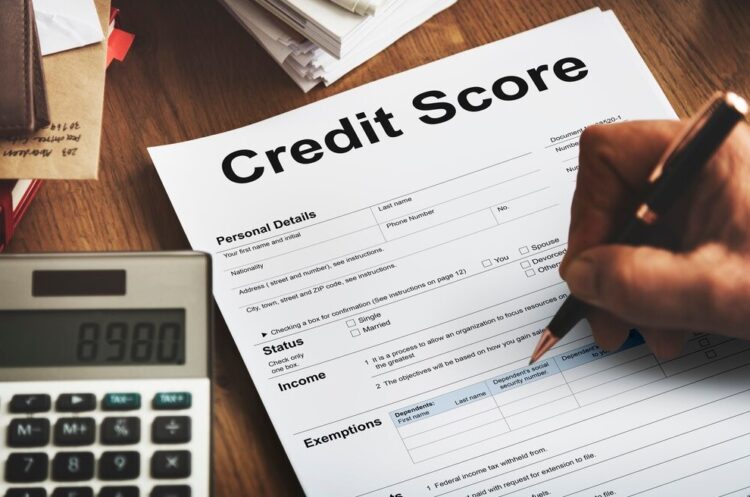While dealing with bad credit can be difficult, it doesn’t have to last forever. No matter if you have suffered financial difficulties, missed payments, or made a few errors along the way, it’s essential to recover and strengthen your credit rating over time.
The secret is to be proactive in managing your credit and changing your financial behavior. This guide sheds light on eight crucial tips that will enable you to manage bad credit and ultimately improve your credit score.
Understand Your Credit Report and Score
Managing bad credit begins with knowing where you stand. Your credit report contains all the information lenders use to evaluate your creditworthiness, including
- payment history,
- debt levels, and
- recent inquiries.
Once a year, the three main credit reporting agencies—Equifax, Experian, and TransUnion—may provide you with a free credit report. Depending on the details in your credit report, usually a number between 300 and 850, your credit score is determined.
If you have bad credit, your score could be lower than 580. Understanding your credit score and report can help you see where you need help and offer a definite starting point for rebuilding.
Consider Bad Credit Loans
Obtaining regular funding might be challenging if your credit rating is low. However, there are alternatives for people with less desirable credit scores.
Although bad credit loans usually have higher interest rates, they could enable you to pay debts on schedule and borrow funds. Responsibly using bad credit loans helps you gradually boost your credit over time.
Be sure to weigh several loan options and only borrow what you need to prevent a debt spiral. Consistently making timely payments on these loans will strengthen your financial position and increase your credit history.

Pay Your Bills on Time
Your payment history is among the most critical factors affecting your credit score. Late or missing payments can severely affect your rating. The most effective approach to handling bad credit is to pay your bills on time, every time.
If you’re struggling to remember due dates, set up reminders on your phone or automate payments through your bank.
Additionally, if you’re unable to make a payment, contact the creditor to explain your situation and potentially work out a payment plan. Most creditors appreciate proactive communication and may be willing to adjust your payment terms.
Reduce Your Debt
Managing bad credit also demands lowering your total debt volume. Particularly on credit cards, high amounts of debt can lower your credit rating and cause financial strain.
Concentrate first on clearing high-interest debts, such as credit cards. Seek to lower your credit usage ratio, which is the amount of credit you’re using against your available credit. For small debts, try the debt snowball approach; for huge interest debts, go with the debt avalanche approach.
Using either of these approaches can enable you to lower your debt and enhance your credit score. As your debts decrease, your credit score should gradually rise.
Check for Errors on Your Credit Report
Errors on your credit report can sometimes cause bad credit. Regularly checking your credit report is critical to detecting any errors or obsolete information that might be lowering your rating.
If you see any errors—for example, wrong account information or late payments when they were on schedule—dispute the errors with the credit bureau.
Since correcting these mistakes can instantly boost your credit score, it’s worth reviewing your credit reports carefully each year.

Avoid Opening New Credit Accounts
Though it may be appealing to open new credit accounts to increase your available credit, doing so will affect your credit rating in the near future.
Applying for more credit causes a hard inquiry on your credit report every time, sometimes lowering your credit score temporarily. Moreover, juggling multiple new accounts can increase your total debt and make it difficult to manage your funds.
Concentrate on handling your current accounts instead of opening new ones. If possible, try not to seek credit unless absolutely required. Instead, pay your bills on time and lower your existing debt.
Set Up a Budget and Stick to It
Ultimately, managing bad credit depends on creating a budget and sticking to it. A well-thought-out budget will enable you to manage your expenses. Give top priority to debt payment and guarantee you are not taking on more debt than you can handle.
Track your monthly income and expenses to identify areas where you can cut back. Allocate money toward paying off high-interest debts and set aside an emergency fund to cover unexpected costs.
The more disciplined you are with your spending, the faster you’ll be able to improve your credit and achieve financial stability.

Wrapping It Up
Managing bad credit requires discipline, patience, and a clear plan of action. By focusing on building positive financial habits and staying proactive about your credit, you can improve your financial situation and set yourself up for long-term success.
Remember, rebuilding your credit doesn’t happen overnight. With consistency, you’ll see results and regain control over your financial future.
 Hi Boox Popular Magazine 2024
Hi Boox Popular Magazine 2024



